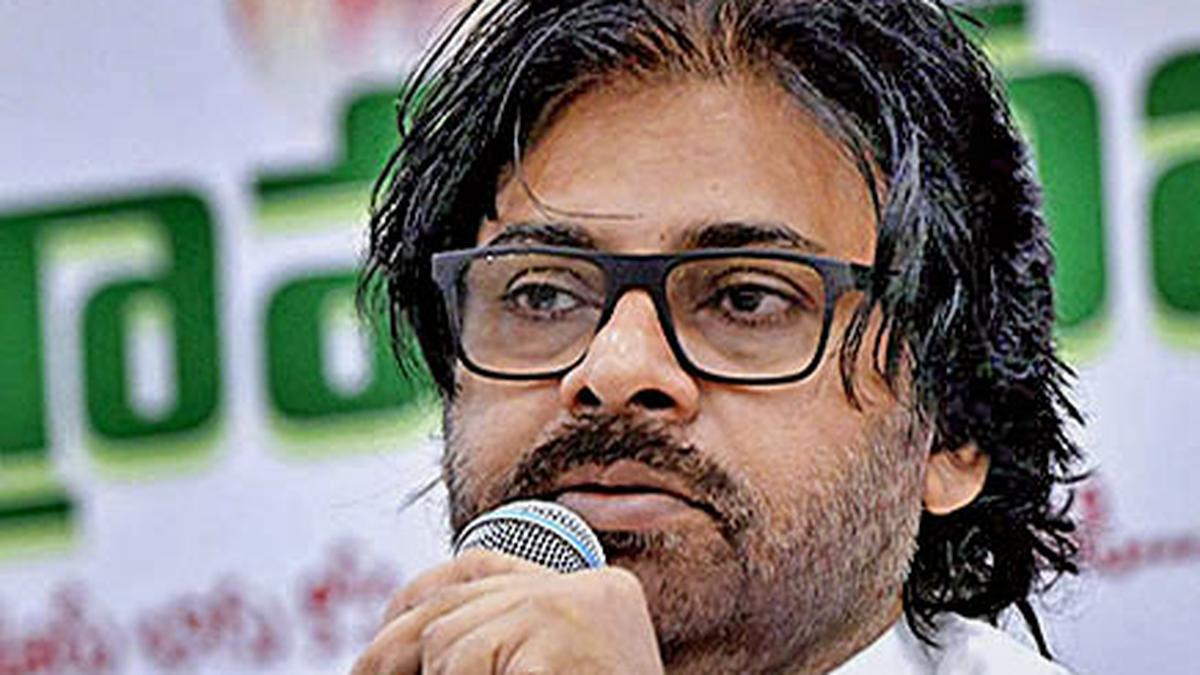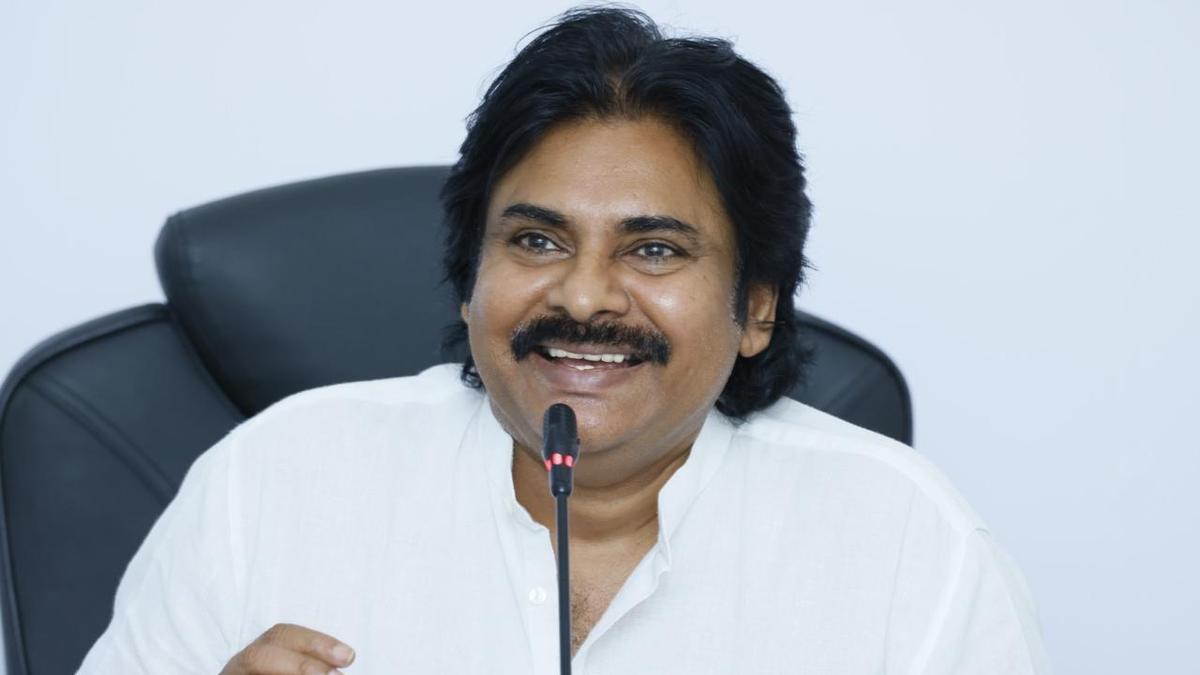As the political landscape in Andhra Pradesh evolves, K. Pawan Kalyan's upcoming yatra promises a deeper connection between leaders and the electorate. Last week, I recalled my own experiences attending community meetings where local issues took center stage, away from the noise of bureaucratic jargon. Like those gatherings, Kalyan's initiative aims to bring transparency and responsiveness to governance, quite refreshing in today's political climate.
The Shift from Bureaucracy to Ground Reality
Understanding the Need for Direct Engagement with Voters
In today’s fast-paced political environment, engaging directly with voters is crucial. Many politicians tend to remain behind their desks, relying on reports and data. However, this approach can create a disconnect. Voters want to feel heard. They want their concerns addressed in real-time. K. Pawan Kalyan recognizes this need. He believes that to truly understand the electorate, one must step out into the field.
During his recent announcement, Kalyan mentioned that the six-month review period for his alliance partners is over. He sees this as a turning point. It’s time for action. He stated, “All reviews will be conducted on the spot during the yatra.” This commitment shows his dedication to understanding the ground realities.
Comparing Traditional Methods to Kalyan's Approach
Traditionally, political leaders would gather data through bureaucratic channels. They would rely on reports generated from offices. This method can be effective, but it often lacks the personal touch. Voters may feel like just another statistic. Kalyan’s approach is different. He intends to visit every gram panchayat in the state, engaging directly with party cadres and constituents.
- Traditional Methods: Office reviews, data reports, and bureaucratic processes.
- Kalyan's Approach: On-site visits, direct conversations, and real-time feedback.
This shift signifies a move from passive observation to active participation. Kalyan aims to create a dialogue, not a monologue. By interacting with voters face-to-face, he can gain insights that reports may miss. This engagement fosters trust and transparency.
The Significance of Visiting Grassroots Locations
Visiting grassroots locations is more than just a campaign strategy. It’s about understanding the people. Kalyan’s commitment to visiting every gram panchayat highlights the importance of grassroots engagement. These visits allow him to hear firsthand the issues that matter most to the electorate.
Grassroots interactions can reveal a lot. They can uncover local problems, from infrastructure issues to social concerns. By being present in these communities, Kalyan can tailor his policies based on actual needs. This is a significant departure from the traditional top-down approach.
Moreover, grassroots visits can strengthen party ties. Kalyan plans to connect with party members directly. This connection can energize the base and encourage active participation in the political process. It’s not just about winning votes; it’s about building relationships.
Real-Time Feedback and Its Importance
Real-time feedback is essential in today’s political landscape. It allows leaders to adapt quickly to changing circumstances. Kalyan’s decision to engage directly with voters means he will receive immediate responses to his policies and initiatives. This feedback loop can be invaluable.
For instance, if a particular policy is not resonating with the public, Kalyan can adjust it based on the feedback he gathers during his yatra. This flexibility can lead to more effective governance. After all, policies should serve the people, not the other way around.
Facing Challenges Head-On
Of course, Kalyan acknowledges the challenges that come with direct engagement. There are security concerns, especially in certain areas. He has received warnings about potential threats. However, he remains undeterred. His commitment to engaging with the public is unwavering. He even stated that he is willing to sacrifice his life to connect with the people.
This determination speaks volumes about his dedication to his role. Kalyan sees himself as a revolutionist in politics. He is ready to face any danger to fulfill his promise of direct engagement. This mindset may inspire others in the political arena to follow suit.
In summary, K. Pawan Kalyan’s shift from bureaucracy to ground reality is a significant development in Andhra Pradesh politics. His focus on direct engagement, grassroots visits, and real-time feedback sets a new standard. By prioritizing personal connections with voters, he aims to create a more responsive and accountable government.
Security Concerns and Political Courage
In the world of politics, few figures stand out like K. Pawan Kalyan. His recent announcement about a state-wide 'yatra' has raised eyebrows and sparked discussions. But what truly sets him apart is his fearless approach to potential threats. He openly acknowledges the dangers that come with his political journey, particularly warnings from intelligence agencies about possible Maoist activities. This is not just a political maneuver; it reflects a deep understanding of the risks involved in public service.
Acknowledging Potential Threats
- Kalyan is acutely aware of the security issues that may arise during his travels.
- Warnings about IED blasts and Maoist activities have been brought to his attention.
- Despite these warnings, he remains undeterred and committed to his cause.
His acknowledgment of these threats shows a level of responsibility. He understands that engaging with the public can be risky, especially in areas where such dangers are prevalent. Yet, he doesn’t shy away from these challenges. Instead, he embraces them. This is a crucial aspect of his political persona, as he positions himself as a leader who is willing to face any danger for the sake of his constituents.
Fearless Stance and Motivations
Kalyan's motivations are clear. He is not just a politician; he sees himself as a revolutionary leader. He stated,
"I am willing to sacrifice my life to engage with the public." - K. Pawan KalyanThis powerful declaration reveals his commitment to his role. It also highlights a profound sense of duty. For Kalyan, engaging with the public is not merely a task; it’s a calling.
His fearless stance can be likened to a soldier going into battle. Just as soldiers prepare for the risks of combat, Kalyan prepares for the challenges of political engagement. He is ready to confront any obstacles that may arise. This readiness is not just bravery; it is a testament to his dedication to serving the people. He believes that understanding the electorate's concerns is vital. Therefore, he chooses to step out of the comfort of his office and into the field.
Personal Risk Influencing Political Engagement
Personal risk plays a significant role in Kalyan's political strategy. By choosing to engage directly with the public, he demonstrates a unique approach to leadership. This method allows him to connect with voters on a personal level. It fosters trust and transparency, qualities that are often lacking in politics today.
- His approach reflects a shift from traditional political practices.
- Kalyan's willingness to face danger enhances his credibility among constituents.
- Direct engagement allows for real-time feedback from the public.
Moreover, Kalyan's self-portrayal as a revolutionary leader resonates with many. It inspires those who may feel disenfranchised or unheard. By taking such risks, he not only raises awareness about pressing issues but also encourages others to engage in the political process. His actions challenge the status quo, pushing for a more engaged and responsive government.
In a world where political leaders often distance themselves from the realities faced by their constituents, Kalyan stands out. His readiness to confront danger underscores his commitment to the people. He is not just a figurehead; he is a leader willing to put his life on the line for the sake of public engagement.
As Kalyan embarks on his yatra, he does so with the understanding that true leadership requires courage. It requires the ability to acknowledge threats while remaining steadfast in one’s mission. His journey is not just about politics; it’s about connecting with the heart of the community. Kalyan’s approach serves as a reminder that political engagement is not just a duty, but a profound responsibility.
The Importance of Strategic Coalitions in Governance
In the complex world of politics, alliances often shape the landscape of governance. One notable example is the coalition between the Telugu Desam Party (TDP) and the Bharatiya Janata Party (BJP). This partnership is more than just a political arrangement; it represents a strategic effort to foster stability and unity in the governance of Andhra Pradesh. Let’s explore the dynamics of this coalition and its implications for regional governance.
Exploring the Dynamics of the TDP-BJP Coalition
The TDP-BJP coalition is a significant political alliance in Andhra Pradesh. It aims to combine resources and strengths to address the challenges faced by the state. But what does this mean for the people? When two parties come together, they can pool their ideas and support, leading to more effective governance. This coalition is a response to the need for a united front in tackling various state issues.
K. Pawan Kalyan, the Deputy Chief Minister, has been vocal about the importance of this partnership. He believes that collaboration is essential for addressing the needs of the citizens. Kalyan has stated that “collective responsibility among alliance members is crucial for state affairs.” This highlights the need for both parties to work together, ensuring that they are aligned in their goals and actions.
Kalyan's Aspirations for a Stable Long-Term Partnership
Kalyan has expressed his desire to maintain this coalition for a significant period—specifically, he envisions a partnership lasting at least 15 years. This long-term commitment is not just about political survival; it is about creating a stable environment for governance. Stability in political alliances can lead to consistent policies and better implementation of programs that benefit the public.
But why is this stability so crucial? In a rapidly changing political landscape, having a reliable coalition can help mitigate risks and uncertainties. It allows for the continuity of governance, which is essential for long-term planning and development. Kalyan's aspirations reflect a deep understanding of the political dynamics at play and the need for a solid foundation in governance.
Impact of Political Alliances on Regional Governance
The impact of political alliances like the TDP-BJP coalition extends beyond mere numbers. It influences how policies are formed and implemented. When parties join forces, they can leverage their collective strengths to address regional issues more effectively. This can lead to improved infrastructure, better public services, and enhanced economic growth.
Moreover, a strong coalition can foster a sense of unity among the electorate. When citizens see their leaders working together, it builds trust and confidence in the political system. Kalyan's proactive approach, including his plans for a state-wide 'yatra,' is aimed at engaging with the public directly. This initiative reflects his commitment to understanding the needs of the people and responding to their concerns.
As Kalyan embarks on this journey, he acknowledges the challenges that come with it. He has been warned about potential security threats during his field visits. Yet, he remains undeterred, ready to confront any danger for the sake of public engagement. His readiness to sacrifice for his constituents showcases a dedication that many politicians aspire to emulate.
Conclusion
The importance of strategic coalitions in governance cannot be overstated. The TDP-BJP alliance is a prime example of how political partnerships can pave the way for effective governance. Kalyan's vision for a 15-year partnership reflects a commitment to stability and unity in addressing state issues. As political dynamics continue to evolve, the ability of these parties to work together will be crucial in navigating the challenges ahead. Ultimately, the success of this coalition will depend on its ability to engage with the public and respond to their needs. In a world where political landscapes shift rapidly, the strength of alliances can make all the difference.


